Power station fires knock out service on hot day in Madison
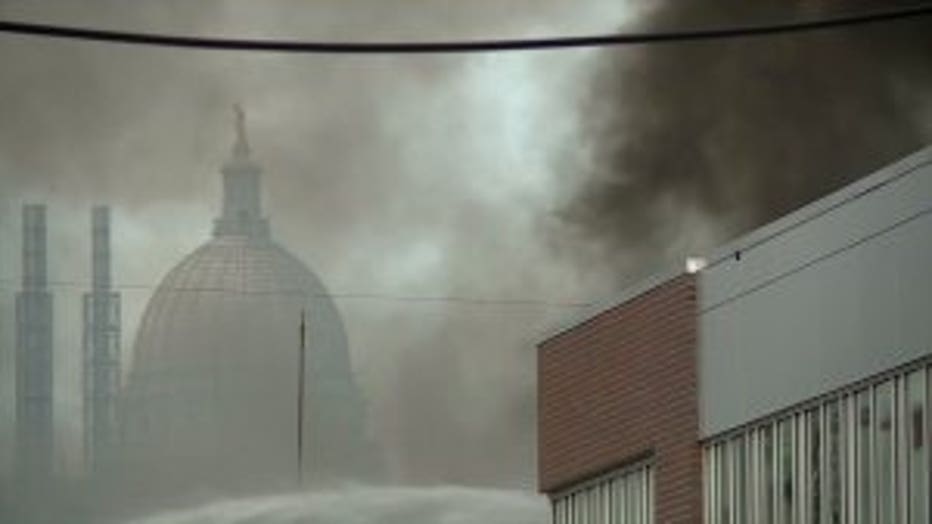
Madison fires and power outage
MADISON — Fires at two transmission substations in Wisconsin's capital on Friday, July 19 knocked out power to thousands of customers on the hottest day of the year to-date, sending dual plumes of thick, black smoke into the air and shutting down government buildings, courtrooms and businesses, and leading the governor to declare a state of emergency.
It literally looked like Hiroshima, except it was black," said Rick Niess, Dane County judge.
No injuries were reported as a result of the 7:40 a.m. explosion and fire at the Madison Gas and Electric main power center a few blocks from the state Capitol, which was among the buildings that were forced to close. A second fire at a substation near the University of Wisconsin-Madison, a couple of miles to the west, prompted the evacuation of nearby buildings. No injuries were reported as a result of that blast, either.
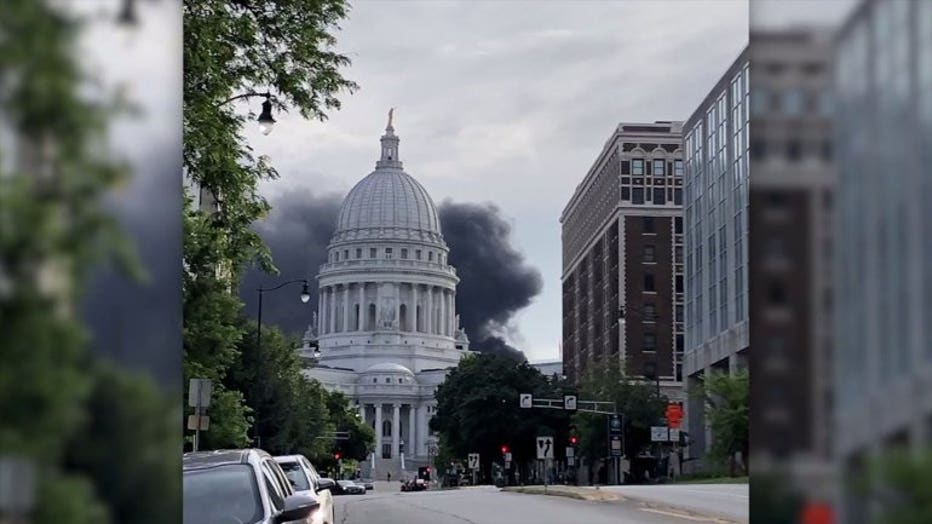
Madison fires and power outage
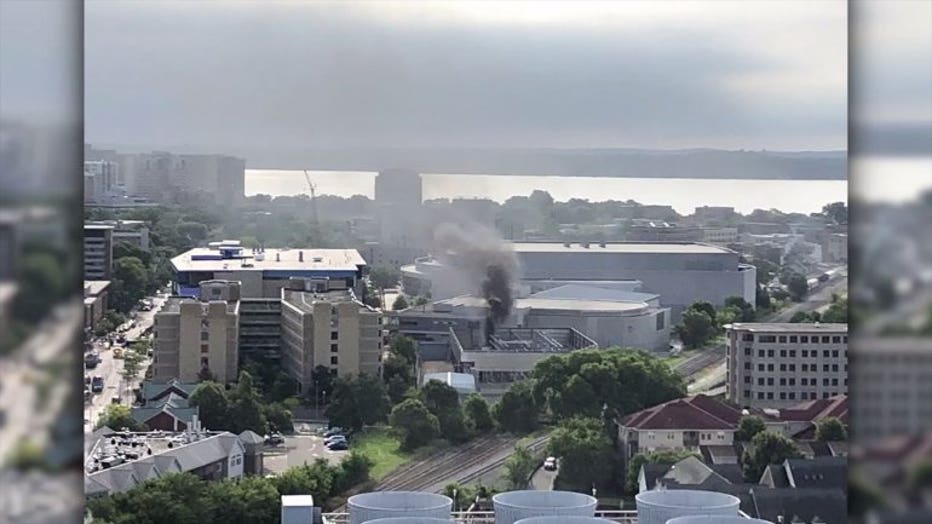
Madison fires and power outage
At its peak, more than 13,000 people were without power. By 4 p.m., though, the utility said only a few customers still lacked electricity.
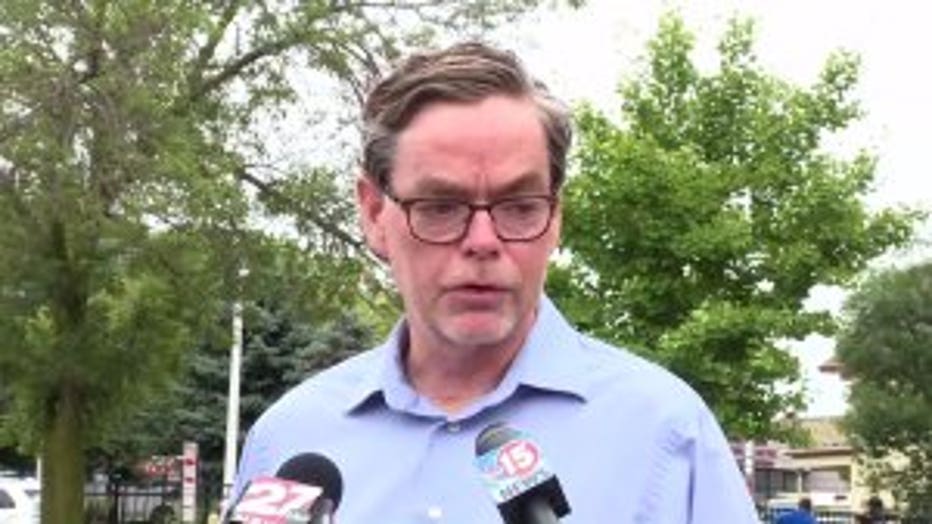
Joel Despain
"We were getting calls of a potential explosion. I can't tell you if there was an explosion but a potential explosion, fire and smoke," said Joel Despain, public information officer with the Madison Police Department.
Gov. Tony Evers declared a state of emergency and closed state agency buildings in downtown Madison.
"We do a lot of contingency planning for emergencies that impact the city and obviously this one has really come to the heart of the downtown," Despain said. Sort of the pulse point of the city."
In the midst of tackling the blaze, a second fire was reported at substation near the University of Wisconsin campus, adding to the heat and prompting the American Red Cross to step in.
"On a day like this it's crucial," said Barbara Parisi, Wisconsin Red Cross.
A cooling shelter was opened at the Kohl Center.
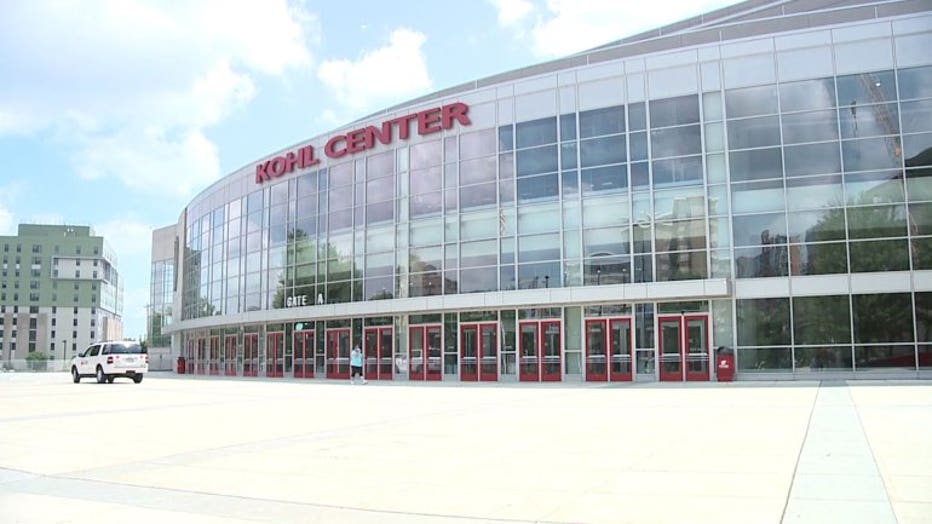
Kohl Center

Kohl Center
"If you're thirsty, you're already dehydrated so you need to drink lots of water and try to come to a place that's cool," Parisi said.
All state court system offices in downtown Madison, including the state Supreme Court and Court of Appeals, also closed because of the outage. Public access to some court system electronic services, including the Wisconsin Circuit Court Access website and electronic filing in some counties, was also down. Traffic lights were knocked out throughout the downtown area because of the outage.
Most hearings were cancelled for the day but Dane County Judge Rick Neiss' cases had to proceed. All of them were time-sensitive from restraining orders to committing mental health patients.
"There are no paper files so you've got to remember what you went over the night before and hope that you're addressing the same case," said Neiss.
Residents with no access to air conditioning were advised to be on alert as the National Weather Service issued an excessive heat warning for the area Friday, with temperatures in the 90s and high humidity. Shelter was available at the Kohl Center, where the UW basketball team plays, on campus.
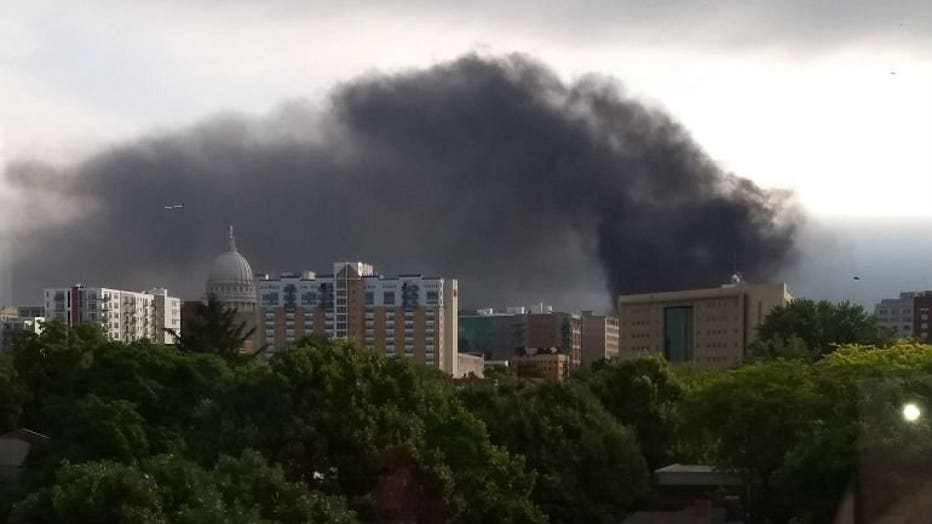
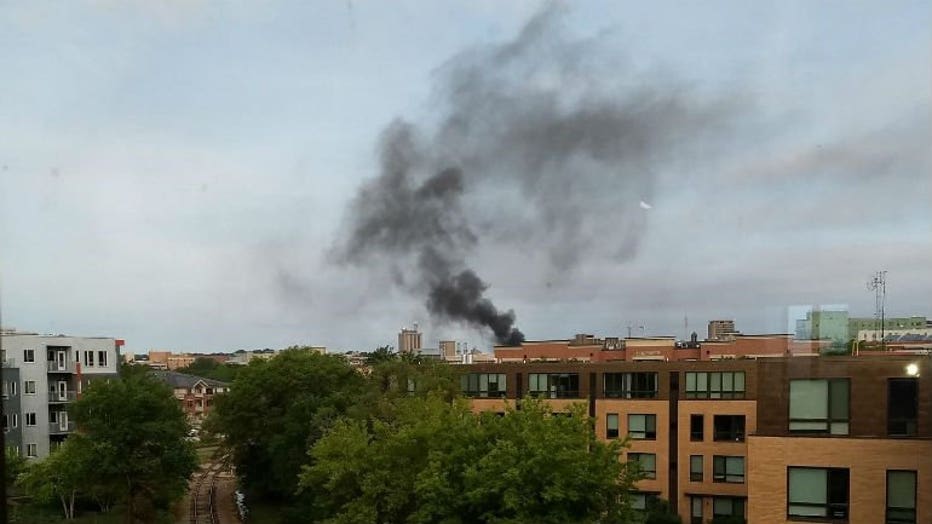
Public Health Madison and Dane County officials advised all businesses, including restaurants, that don't have emergency backup power sources, to close until power was restored.
Zane Geyer, a construction worker working on the seventh floor of the downtown Gebhardt Building told the Wisconsin State Journal he saw the first explosion.
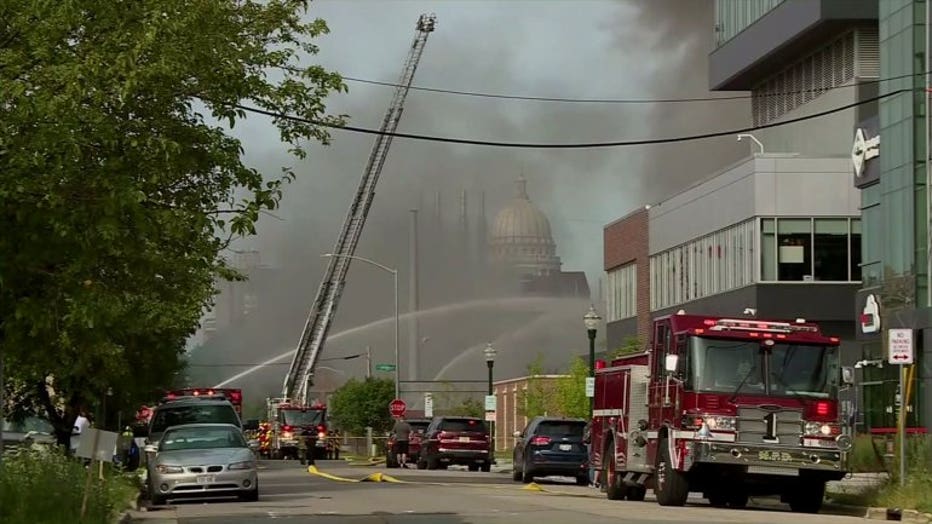
Madison fires and power outage
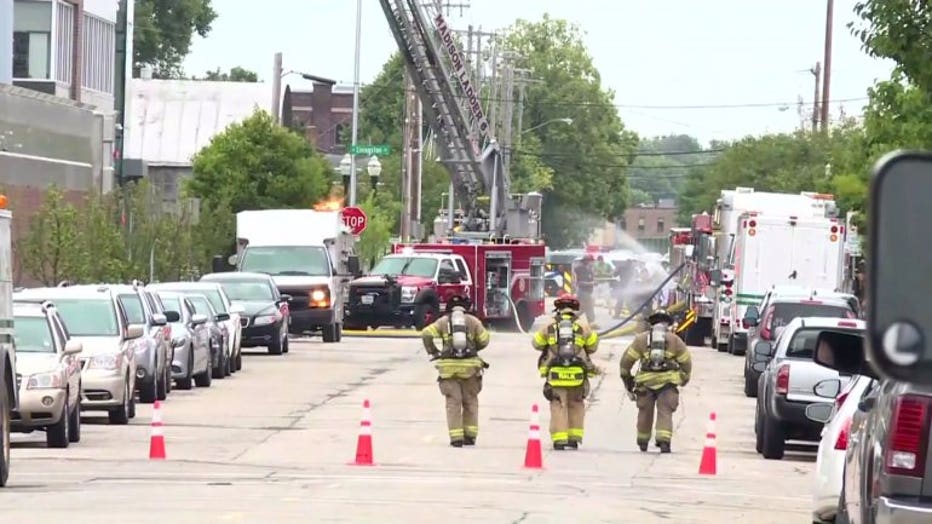
Madison fires and power outage
"Flames went about 150 feet (46 meters) into the air," Geyer said. "The fire kept getting bigger, and the transformers' oil inside probably fueled it."
Geyer said there were three or four explosions after the first one, as transformers blew.
Utility officials said they had not identified the cause of the explosion, but they had ruled out heat and were looking at mechanical issues.
In a late afternoon statement, the city said the Madison Fire Department had to use a foam that's often associated with contaminants known as perfluoroalkyl substances, or PFAS. The city said it's not clear whether the foam actually contained PFAS, but it is being tested and steps were taken to lessen the spread of water and foam.
Two environmental engineering companies have removed hundreds of gallons of water from the storm sewer in two areas, and the water will be tested. Barriers were installed to curtail water run-off and soil will be removed as part of the remediation process, the city said.

